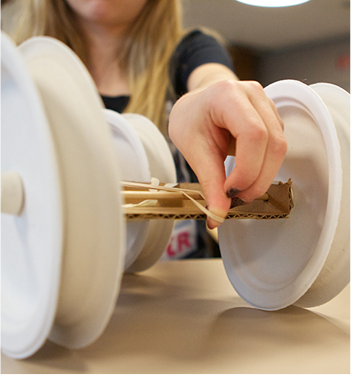 This month’s Spotlight highlights DRK-12 innovations and research in engineering education. Six projects share information about their work— how they are integrating engineering into other disciplines, their use of innovative technologies, the unique affordances and challenges related to this area of STEM education, as well as research findings and products. The Spotlight also includes a list of other active and recent DRK-12 projects, DRK-12 publications, and other resources related to engineering education.
This month’s Spotlight highlights DRK-12 innovations and research in engineering education. Six projects share information about their work— how they are integrating engineering into other disciplines, their use of innovative technologies, the unique affordances and challenges related to this area of STEM education, as well as research findings and products. The Spotlight also includes a list of other active and recent DRK-12 projects, DRK-12 publications, and other resources related to engineering education.
In this Spotlight:
- Featured Projects
- Biomimicry as an Authentic Anchor: Giving Teachers the Tools to Adapt an Interdisciplinary Middle School Curriculum (PI: Debra Bernstein)
- Elementary Teacher Professional Learning of Equitable Engineering Pedagogies for Multilingual Students (PI: Mary McVee)
- Engineering for Students with Extensive Support Needs (PI: Bree Jimenez)
- Fostering Computational Thinking Through Neural Engineering Activities in High School Biology Classes (PI: Ido Davidesco)
- Fostering Systems Thinking in High School Environmental Engineering Through Engagement of Coastal Communities (PI: Rossella Santagata)
- Support Partnership for New Bilingual Science and Engineering Teachers (PI: Alberto Esquinca)
- Additional Projects
- Related Resources
Featured Projects
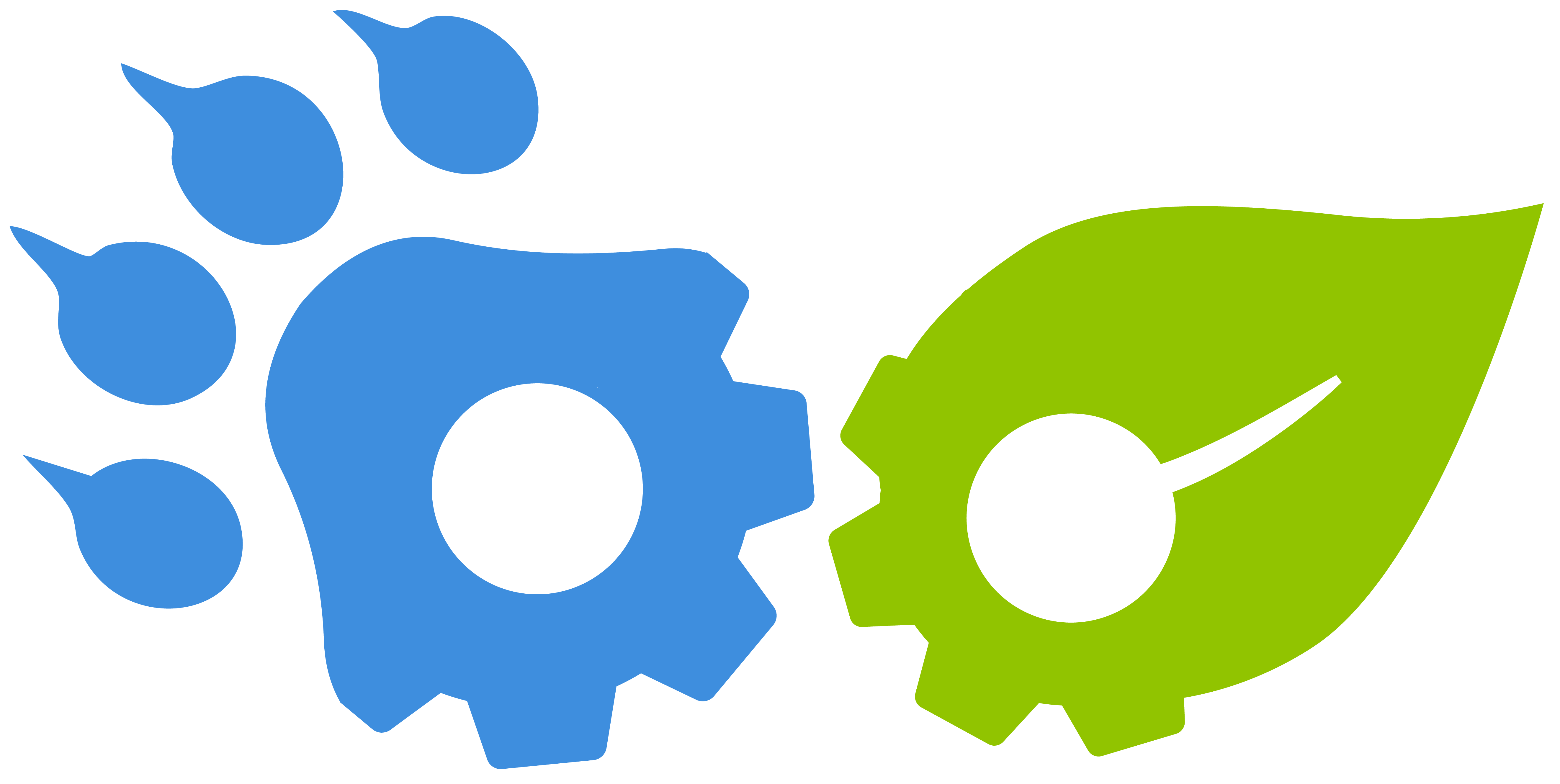
Biomimicry as an Authentic Anchor: Giving Teachers the Tools to Adapt an Interdisciplinary Middle School Curriculum
PI: Debra Bernstein | Co-PIs: Michael Cassidy, Ethan Danahy, Gillian Puttick, Kristen Wendell
Grades: 6-8
Disciplines: Engineering, Biology
Engineering Concepts and Practices: Our project focuses on biomimicry, which is the application of a structure-function relationship from an organism or ecosystem to the design of a human-created system. Project materials are designed to support both engineering and science concepts and practices.
Drawing from the NGSS, BAA project materials support engagement in the following engineering practices:
- Defining problems that can be addressed with a biomimetic design process
- Developing and using models, including physical (e.g., robot prototypes) and digital (e.g., TinkerCAD) models
- Planning and carrying out investigations
- Using computational thinking practices (e.g., abstraction, decomposition)
- Designing solutions using a biomimetic approach
- Obtaining, evaluating, and communicating information
Project Description: The Biomimicry as an Authentic Anchor (BAA) project takes up the call for increased research on how to support integrated STEM learning. While many middle schools teach science, engineering, and technology in separate classes, education policymakers realize that integrated STEM is beneficial for student learning and helpful for students’ eventual entry into integrated STEM workplaces (e.g., Achieve, 2013; NAE & NRC, 2014). Our goal is to design and research a professional development (PD) model that supports middle school science and engineering teachers to adapt, plan and enact design-based integrated STEM units focused on biomimicry. Our approach to PD supports teachers to plan and adapt biomimetic design curriculum materials that are cohesive, modular, and professionally and personally authentic to their students.
The BAA project seeks to build new knowledge in the fields of science, engineering, and computing education by: (1) identifying the skills and resources that impact middle school teachers’ planning for integrated STEM instruction; (2) identifying how a modular approach to materials design and professional development can support teachers’ design and instructional choices; and (3) documenting how well middle-school student learning is impacted by biomimetic design curricula intentionally designed for authenticity and for cohesion across disciplines.
Strategies for Integration with Other Disciplines: Our project engages teachers (and students) in biomimicry design challenges, which naturally integrate engineering and science. Biomimicry design challenges in our project generally begin with students studying the natural world to learn how plants and animals accomplish different functions and then designing and building a model inspired by what they learned. For example, if the engineering design challenge is to build a tool that can dig through rubble, students would first study the structures of animals well-adapted for digging (i.e., a pangolin’s claws or a mole’s forelimbs), and then use what they learned to design a digging device. We have curated science resources for teachers to use when they design their own biomimicry design challenges. To date, we have developed resources to support design challenges involving digging, flinging, grasping, fragile material protection, and airborne transport.
Innovative Technologies: The BAA project introduces three different types of technology – TinkerCAD (an online digital modeling tool), Hummingbird robotics kits, and a simple kit of non-programmable motors and batteries, to support students’ creation of prototypes during engineering design challenges. Our project has also created a representation dubbed “the matrix,” which explicates the different ways teachers can move through a design space of representational complexity using different types of technology. The matrix describes the space along two dimensions, (1) type of technology (tangible/physical vs. digital), and (2) complexity of representation (static vs. dynamic and programmed). Thus, each cell in the matrix describes an option for creating design prototypes at different points along those two dimensions. For example, a physical + static structure would be a non-moving structure that allows students to explore hands-on prototyping and structure/function relationships, while a physical + triggered structure would use a robotics kit to actuate the prototype in response to sensor input, allowing students to explore stimulus and response patterns and conditional motion. The matrix is introduced during professional development to facilitate teachers’ choices about which type(s) of technology to use and in what sequence.
Initial Findings: In the first year of curriculum enactments for the Biomimicry as an Authentic Anchor project, over 300 middle-school students in seven different school districts have solved biomimetic design challenges as a part of their STEM courses. Although their teachers differed in the specific topics and tools they used, all design challenges were shaped by the need to balance district mandates with the flexibility to explore biomimetic concepts. Teachers’ choices reflected their understanding of students’ prior knowledge, the time available for instruction, and their own expertise in design and engineering. These variations highlight the impact of both external factors such as school requirements and personal teaching goals on the outcomes of the curriculum implementation. (Xu et al., 2025a).
Products: Presentations and Publications:
- Pangan, T., Wendell, K., Xu, G., Cassidy, M., Church, B., Danahy, E., Bernstein, D. (2025). Biomimicry as an authentic anchor (resource exchange): Design challenge: Airborne transport. American Society for Engineering Education (ASEE) Annual Conference & Exposition, Montreal, Canada, June 2025.
- Wendell, K., Xu, G., Bernstein, D., Cassidy, M., Church, W., & Danahy, E. (2025, March). Middle-school STEM teachers’ collaborative sensemaking during a curriculum planning workshop. Paper presented at the NARST Annual International Conference, Washington, DC.
- Xu, G., Wendell, K., Pangan, T. J., Bernstein, D., Church, W., & Danahy, E. E. (2025a). Biomimicry as an authentic anchor: Giving teachers the tools to adapt an interdisciplinary middle school curriculum (DRK12). In Proceedings of the ASEE Annual Conference & Exposition.
- Xu, G., Wendell, K., Pangan, T., Bernstein, D., Cassidy, M., Church, W., & Danahy, E. (2025b). Curriculum choices for middle-school biomimetic design activities. In Proceedings of the ISLS Annual Meeting.
This project also draws on our prior biomimicry curriculum development work, available at terc.edu/biorobots.
Suggested Reading: We find asknature.org to be a helpful biomimicry resource.
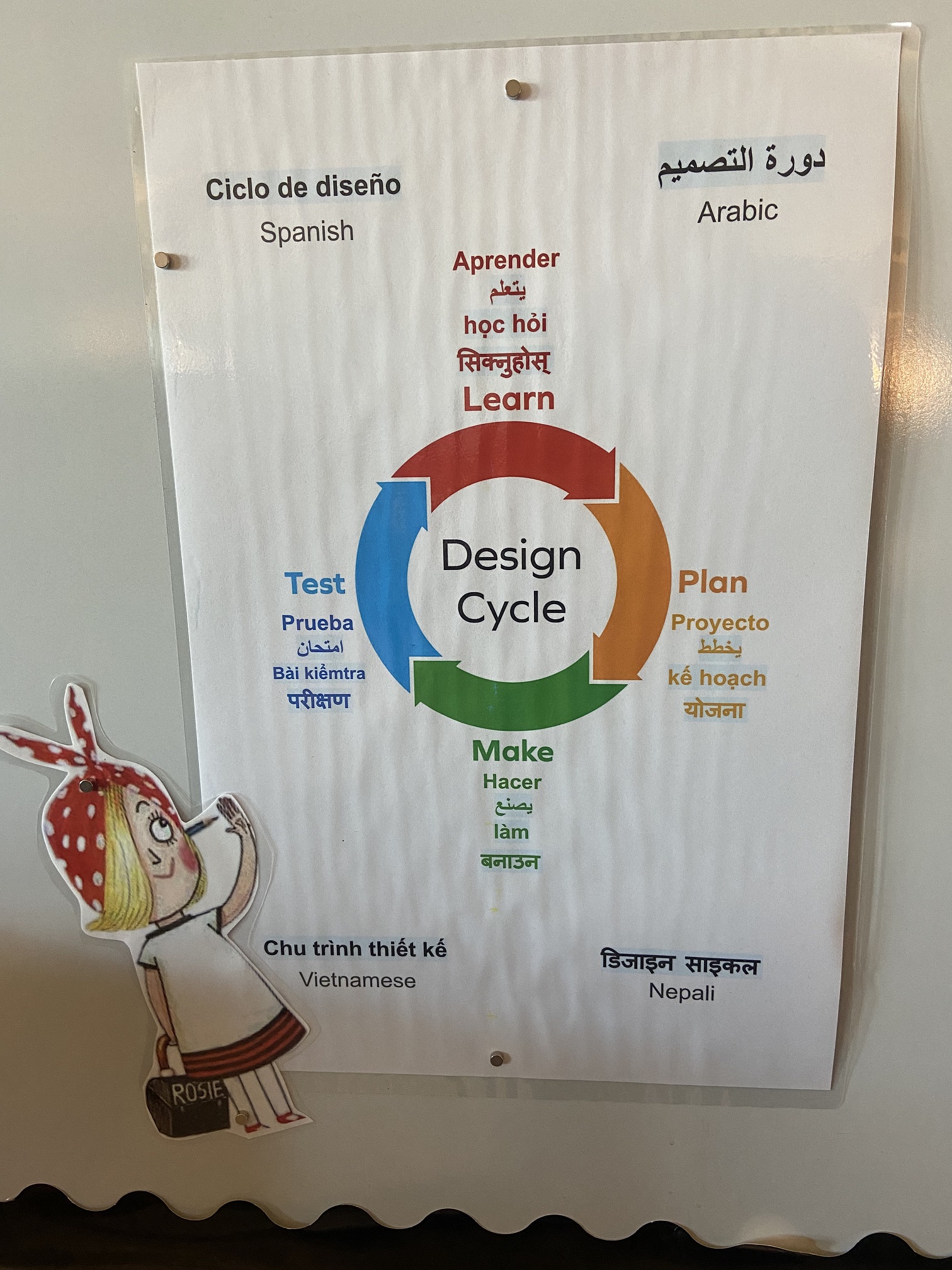
Elementary Teacher Professional Learning of Equitable Engineering Pedagogies for Multilingual Students
PI: Mary McVee | Co-PI: Jessica Swenson
Grade: 3
Disciplines: Engineering, Literacy; Teachers also integrate engineering with other disciplines such as social studies, English Language Arts, and science.
Engineering Concepts and Practices: Problem-scoping, identifying constraints and criteria, planning/brainstorming, testing, redesigning, learning from failure, engineering design challenges, problem-based learning
Project Description: Elementary schools can be challenging places to teach especially when teachers are routinely tasked with teaching new subject matter such as engineering which is now included in state and national science standards. At the same time, children bring many different needs related to learning and language development, especially if children speak multiple languages and are still developing proficiency in English. This project addresses both teachers’ need to be introduced to how to teach engineering design in elementary classrooms and the need to address language support for all students, but particularly those who are emergent bilingual students. This project demonstrates that with a supportive professional learning community, teachers can implement lessons that address both engineering and language. Within professional learning experiences, teachers can explore their understandings, beliefs, and values (i.e., ideologies) about language. Additionally, all students in the classroom can benefit from teachers’ understanding and instruction related to these topics.
Challenges in Engineering Education and Strategies for Addressing Them: Most elementary teachers do not have prior training or experience with teaching engineering. Oftentimes their reticence is taken as a starting point for research. However, elementary teachers are very familiar with literacy teaching, and using literacy and language can provide an entry point or level of comfort for elementary teachers to take up engineering. Because teachers may feel intimidated by the idea of teaching engineering, inviting them to work in a professional learning experience (PLE) helps form a shared, supportive community. Within the PLE teachers are positioned as learners; they engage in some of the same engineering design challenges that they will be teaching. They share ideas about teaching and raise questions about language, languaging, and engineering and receive feedback from language and engineering experts and peers. Because the PLE is sustained across time, teachers support one another in risk-taking and exploration as they implement changes to their classroom instruction. This includes teaching engineering for the first time and using strategic language support for children still learning English.
Initial Findings: Initial findings demonstrate that elementary teachers in a sustained professional learning experience take up opportunities to learn about engineering and translanguaging and to explore language ideologies (i.e., values, attitudes, beliefs around language). Over time, teachers increase their understanding of engineering and engineering design and of translanguaging shifting positions in relation to both engineering and language. Teacher report more shifts in their learning and teaching related to engineering due to a lack of prior experience with engineering. Teachers report shifts in relation to language ideologies and translanguaging practices, but these shifts are more subtle given that elementary teachers are more familiar with many language supports for students.
Products:
- Mullins, D., Swenson, J., & McVee, M. B. (2024, 13-16 Oct. 2024). WIP: Engineering and Learning Affordances for Multilingual Learners in Elementary Classrooms. 2024 IEEE Frontiers in Education Conference (FIE).
- Swenson, J. E., & McVee, M. B. (June, 2024). Elementary Teacher Professional Learning in Equitable Engineering Pedagogies for Multilingual Students. NSF Grantees Poster Session Collection 2024 ASEE Annual Conference, Portland, OR.
Suggested Reading:
- Wilson-Lopez, A., & Gregory, S. (2015). Integrating literacy and engineering instruction for young learners [Article]. Reading Teacher, 69(1), 25-33. https://doi.org/10.1002/trtr.1351
- Esquinca, A., de la Piedra, M. T., & Herrera-Rocha, L. (2023). Emergent bilinguals’ participation in multilingual engineering learning ecologies. Journal of Pre-College Engineering Education Research, 13(2), Article 3. https://doi.org/10.7771/2157-9288.1369
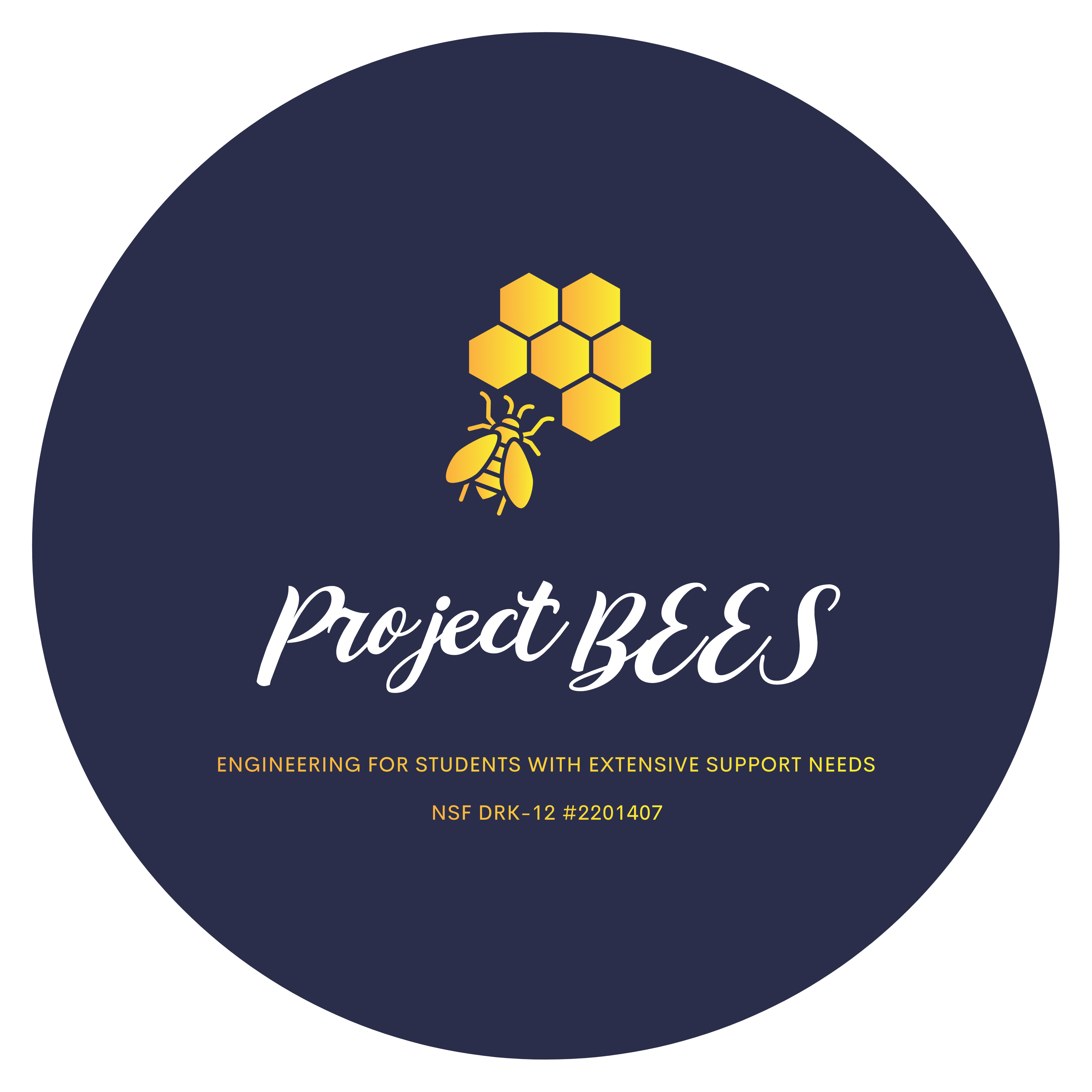
Engineering for Students with Extensive Support Needs
PI: Bree Jimenez | Co-PIs: Ginevra Courtade
Grades: K-6
Disciplines: Engineering, Special Education
Engineering Concepts and Practices: This project focuses on developing student engineering behaviors such as persistence, collaboration, and a strong engineering identity, while emphasizing the engineering design process. Specifically, the project explores how these practices can be adapted for students with extensive support needs, including those with complex communication challenges, ensuring they can also engage meaningfully in engineering practices and the design process. The goal is to define what engineering behaviors look like for students with moderate to severe intellectual disabilities; to help teacher notice these behaviors and support them during the design process.
Project Description: This project focuses on enhancing the professional development (PD) of elementary special education teachers by examining their experiences in a multi-year PD program. Project BEEs aims to provide teachers with access to a research-based, engineering education curriculum, Youth Engineering Solutions; YES, designed to promote reform in STEM education. The project supports teachers in learning about engineering design and teaching methods that engage elementary students with intellectual and developmental disabilities in engineering practices. By doing so, the project not only enhances teachers' knowledge and skills but also fosters teachers’ ability to promote and explicitly build student engineering behaviors (i.e., Habits of Mind). Ultimately, the goal is to equip teachers with the tools and support necessary to deliver high-quality, engineering education, thereby helping to bridge gaps in STEM learning for students with disabilities.
Innovative Technologies: We developed a framework grounded in engineering practices and Universal Design for Learning (UDL) to guide our professional development and curricular adaptations.
Unique Opportunities and Affordances in Engineering Education: Historically, this population of students have not been afforded the opportunity to engage in engineering. Our teachers often have not ever participated in science training, and especially not engineering professional development. This project is breaking barriers to science and engineering education for students with disabilities.
Initial Findings: Thus far based on both qualitative and quantitative methods, our findings highlight the transformative impact of engineering programming (YES curriculum) on both teacher perspectives and student outcomes. Initially skeptical about their students’ abilities and their own teaching effectiveness, teachers experienced a significant shift in their beliefs as they engaged with the curriculum. Their increased confidence and appreciation for students' problem-solving and collaboration skills were evident in higher self-efficacy scores and positive reflections on student progress. Students demonstrated notable growth in their ability to tackle complex tasks, solve problems creatively, and engage in collaborative learning, which significantly enhanced their academic and personal development. Overall, the program not only reshaped teachers’ approaches but also provided students with meaningful, engaging experiences, emphasizing the value of engineering education in diverse learning environments.
Products: Project website coming soon!
Suggested Reading:
- Jimenez, B. A., Croft, G., Twine, J., & Gorey, J. (2021). Development of engineering habits of mind for students with intellectual disability. The Journal of Special Education, 55(3), 174-185.
- Wood, L., Jimenez, B., & Courtade, G. (2025). An instructional framework for teaching STEM to students with moderate to severe disabilities. School Science and Mathematics, 125(1), 75-87.
- YES Museum of Science
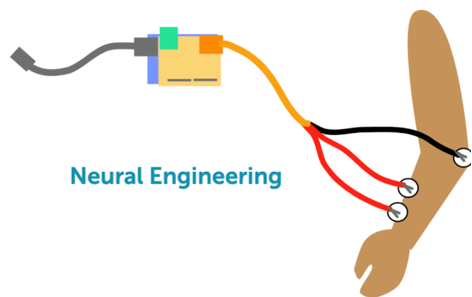
Fostering Computational Thinking Through Neural Engineering Activities in High School Biology Classes
PI: Ido Davidesco | Co-PIs: Aaron Kyle, Bianca Montrosse-Moorhead, Christopher Rhoads, John Settlage
Grades: 9-12
Disciplines: Engineering, Biology, Computer Science
Engineering Concepts and Practices: This project engages students in the engineering design process through identifying a problem, developing solutions, and building and testing prototypes. In the process, students develop these engineering practices in the context of biology by considering how technology can meet the needs of real-world people.
Project Description: High school students have limited opportunities to engage with engineering design and computational thinking in introductory science courses. To address this need, our team developed a month-long neural engineering curriculum for high school biology classes. At the beginning of the unit, students are introduced to Tilly, a teenager who lost her arms at a young age and uses bionic arms in her daily life. Throughout the unit, students explore how bionic arms work. As part of this process, they code and test a prototype gripper that opens and closes based on the electrical activity of their own muscles. They also propose engineered solutions for other people with various physical needs. The curriculum was co-designed with engineering and biology teachers and has been implemented to date in 11 schools.
Alongside developing students’ understanding of biology and engineering, the unit also focuses on developing students’ computational thinking. The students use a blocked-based program to code their grippers and have opportunities to progress between their initial theorized models (hand-drawn models), to computational models (simulated grippers), and finally to computationally mediated physical models (real-world grippers). To our knowledge, this is the first unit specifically designed to integrate and foreground computational thinking, engineering design, and biology at the high school level, and so provides an opportunity to develop our understanding of how computational thinking can be understood in engineering contexts.
Strategies for Integration with Other Disciplines: We chose to focus the unit on bionic arms specifically with the goal of integrating engineering and other disciplines. As they work towards prototyping a bionic arm, students need to learn about biology (the nervous system), develop computational representations, mechanical affordances and limitation, and user goals (e.g., restoring function, comfort). The integration between disciplines is thus central to students’ engagement with the unit as they need to develop and connect between their understanding of several disciplines in tandem towards achieving their goals.
Challenges in Engineering Education and Strategies for Addressing Them: Most of the teachers who we worked with had no prior experience implementing engineering into their biology classrooms. To that end, the teachers all attended a 3-day-long professional development in the summer prior to their implementation to become familiar with the implementation, and our team members often joined their classes to provide real-time support. Our close collaboration also became an asset, as the teachers were also able to feedback along many points in the development and implementation of the unit.
Initial Findings: Early findings show that this project supports students’ self-efficacy around engineering, as well as their appreciation of the value of engineering for real-world applications. The project has also contributed to the work in measurement through identifying key points in which design-based research interacts with the measurement strategy of emergent design evaluation.
Products: The materials are currently available online for teachers to use at https://learn.concord.org/neural-engineering.
We also have a number of publications and presentations from this work:
- Journal Articles:
- Boczar, D., Montrosse-Moorhead, B., & Davidesco, I. (2025). Refining nascent interventions through emergent design evaluation. Evaluation and Program Planning, 111, 102564. https://doi.org/10.1016/j.evalprogplan.2025.102564
- Aldemir, T., Davidesco, I., Kelly, S., Glasser, N., Kyle, A. M., Montrosse-Moorhead, B., & Lane, K. (2022). Investigating Students’ Learning Experiences in a Neural Engineering Integrated STEM High School Curriculum. Education Sciences, 12(10). https://doi.org/10.3390/educsci12100705
- Conference Presentations:
- Davidesco, I., Montrosse-Moorhead, B., Boczar, D., Oas, J., Coburn, M. Dyke, A. M., & Bondaryk, L. (Accepted). Fostering Computational Thinking Through Engineering Design Activities in a High School Biology Course. Proceedings of the 19th International Conference of the Learning Sciences - ICLS 2025. Helsinki, Finland.
- Bondaryk, L., Davidesco, I., Dyke, A. M., Montrosse-Moorhead, B., Coburn, M., Boczar, D., Oas, J., & Dorsey, C. (Accepted). Embodied Sensors and Digital Twins as an Introduction to Microprocessor Programming for Middle and High School Non-CS Majors. 2025 American Society of Engineering Education Annual Conference. Montreal, QC, Canada.
- Oas, J., Montrosse-Moorhead, B., Davidesco, I., & Boczar, D. (2024, April). Using an equity, diversity and inclusion lens to review computational thinking research. Poster presented at the annual meeting of the American Educational Research Association, Philadelphia, PA.
- Ademir, T., Glaser, N., & Davidesco, I. (2022, October). Exploring how user-centered approaches and empathy informed the co-design of a neural engineering curriculum [Conference presentation]. Association for Educational Communications & Technology convention, Denver, Colorado.
- Davidesco, I., Kyle, A., Montrosse-Moorhead, B., Rhoads, C., & Settlage, J. (2023, June). Fostering Computational Thinking Through Neural Engineering Activities in High School Biology Classes [poster]. DRK-12 PI Meeting, Arlington, Virginia.
- Kelly, S. M. (2022, November). Incorporating empathic engineering design in the high school science classroom [Conference presentation]. Massachusetts Association of Science Teachers [MAST] conference, Marlborough, Massachusetts.
- Kelly, S. M., Davidesco, I., & Kyle, A. (2023, July). Integrating computational thinking into a neural engineering high school curriculum [poster]. American Society for Engineering Education [ASEE], Baltimore, Maryland.
- Davidesco, I. (2022). Promoting computational thinking through neuroscience & engineering design activities. SciEd 2022. Washington, DC.
- Kelly, S. & Klimowicz, B. (2022). STEM + Empathy in Use in the Design of an Improved Bionic Arm. National Science Teaching Association. Chicago, IL.
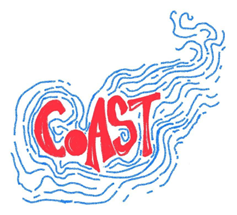
Fostering Systems Thinking in High School Environmental Engineering Through Engagement of Coastal Communities
PI: Rossella Santagata | Co-PI: Hosun Kang, Jennifer Long, Sara Ludovise
Grades: 9-12
Disciplines: Engineering, Biology, Chemistry, Environmental Science
Engineering Concepts and Practices: The curriculum follows a model-validate-iterate design paradigm, where students model dynamic real-world systems, validate their models using data, and create multiple iterations to explore changes in the system over time. The project aims to cultivate a new generation of environmental engineers who possess the necessary skills to analyze complex systems, collaborate with diverse communities, and develop creative solutions.
Project Description: This project is an innovative exploratory research study focused on developing a high school environmental engineering curriculum that addresses the challenges posed by climate change. The curriculum follows a model-validate-iterate design paradigm, where students model dynamic real-world systems, validate their models using data, and create multiple iterations to explore changes in the system over time. The project aims to cultivate a new generation of environmental engineers who possess the necessary skills to analyze complex systems, collaborate with diverse communities, and develop creative solutions. By integrating systems thinking (ST) and critical science agency (CSA), the curriculum will bridge the gap between classroom learning and real-world applications. Through collaborative efforts with students—largely from minoritized backgrounds, teachers, and community partners, the project will create an engaging and participatory STEM learning experience. The outcomes of this project will contribute to the national interest by preparing students for environmental engineering careers and empowering them to address climate change-related challenges with creativity, effectiveness, equity, and justice.
Using a design-based implementation research approach, the interdisciplinary research team—including the University of California, Irvine's Schools of Education, Engineering, and Biological Sciences—partner with informal science educators from the Orange County Department of Education, teachers from local school districts, students from minoritized communities, and non-profit and community partners to co-design the curriculum. The project investigate coastal changes along the Santa Ana River in Orange County, CA.
Challenges in Engineering Education and Strategies for Addressing Them: A key challenge in high school engineering education is that there are rarely formal engineering classes. Most students do not have enough preparation or opportunities to engage with engineering concepts before college. In addition, engineering content is often missing from traditional high school subjects. Therefore, it is harder to build students’ understanding and interest.
Our project addresses these challenges by integrating engineering learning into existing subjects, such as chemistry, environmental science, and biology. We design curriculum materials that connect engineering practices with real-world, community-based problems. This approach allows students to engage in design and systems thinking through issues that matter to them. By embedding engineering into subjects they already take, we lower barriers and help students develop critical science agencies in engineering.
Products: Our project has developed a design matrix for high school teachers to identify engineering challenges that they can use in their classrooms. This matrix helps teachers connect engineering and environmental topics they already teach to social issues that matter to students and their communities. It scaffolds teachers to design placed-based lessons for their students by integrating social justice in engineering education.
Support Partnership for New Bilingual Science and Engineering Teachers
PI: Alberto Esquinca | Co-PIs: Melissa Navarro
Grades: K-8
Disciplines: Bilingual science and engineering instruction is by definition a multidisciplinary effort. To design effective bilingual instruction, teachers must apply concepts of second language acquisition, bilingual literacy (bi-literacy) development and critical literacy. In addition to the engineering design cycle, they must apply science and mathematics to identify problems, propose solutions, gather information and test their designs.
Engineering Concepts and Practices: Participants will be asked to develop lesson plans in which they guide their students to use the engineering design cycle. The specific engineering concepts and practices we will address is: identifying problems and proposing solutions. As credential candidates and as novice teachers, participants will be guided to conduct community scans in order to identify local problems that can be addressed through the engineering design cycle. Participants will be asked to develop lesson plans in which they guide their students to use the engineering design cycle.
Project Description: The underrepresentation of Latinés in science and engineering, particularly when considering intersectional factors of gender, social class, race/ ethnicity and language, is a known systemic issue. Latiné bilingual teachers who often educate generations of Latiné students classified as English learners (ELs) must contend with this issue every day, as they have faced this problem themselves and are charged with teaching science and engineering (S&E) with limited bilingual resources. San Diego State University (SDSU) serves a population of bilingual teacher candidates (BTCs) that are mostly Latiné, female, first-generation college students, and Spanish and English bilingual. Many were labeled as ELs in school, and tracked into programs where the emphasis was on learning English, to the exclusion of other subjects, including science. They often choose to become bilingual teachers out of a desire to improve the educational experiences of students like them. Despite their best intentions, they may reproduce the exclusion of ELs in S&E. To our knowledge, there are currently no efforts to systematically address the specific needs of bilingual Latiné teachers, particularly as they become novice bilingual teachers (NBTs). This grant will fund a partnership between the largest bilingual teacher preparation program in California in the Department of Dual Language & English Learner Education (DLE) at SDSU, and local educational agencies (LEAs), including the second largest school district in California. The partnership seeks to provide ongoing professional development to two cohorts of NBTs to teach S&E with a focus on equity.
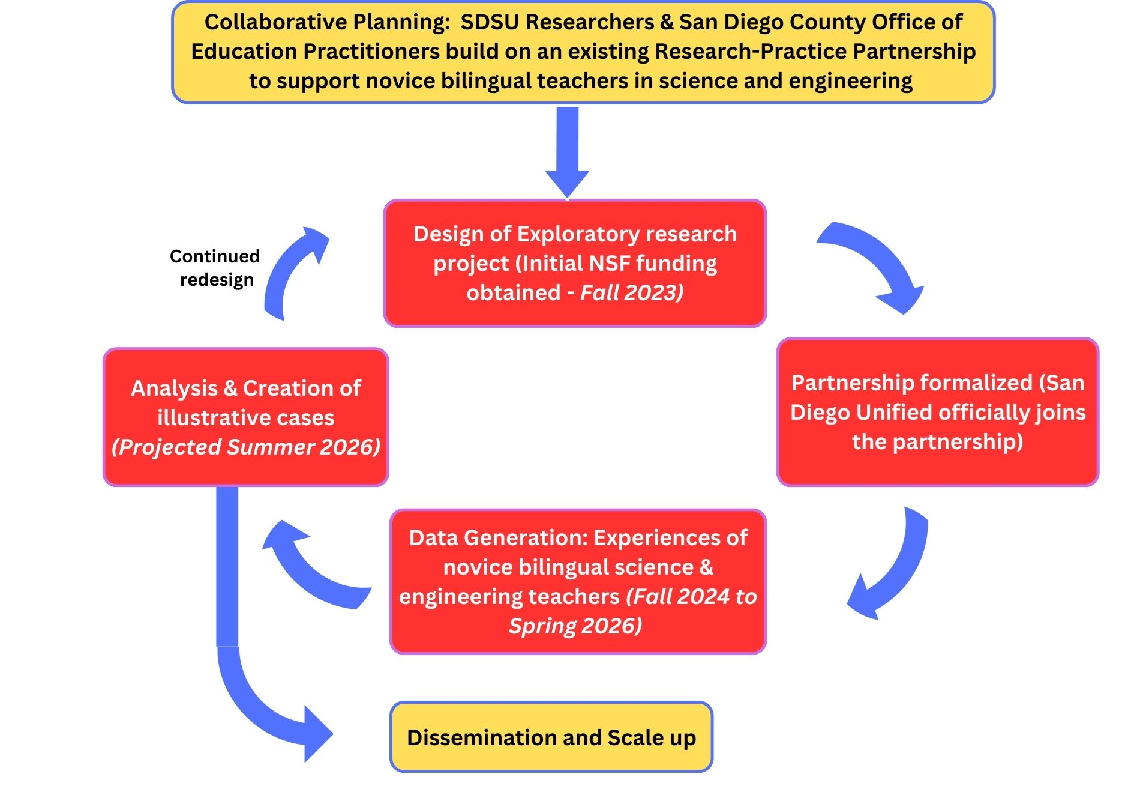
Challenges in Engineering Education and Strategies for Addressing Them: The unique challenges identified by our Research-Practice Partnership is the systemic exclusion of Latiné students classified as English learners (ELs) from STEM pathways. To address this issue, we have created a support partnership that will document how the issue impacts new teachers. In further iterations, the partnership will create bilingual materials and expand to foment a network of bilingual teachers committed to expanding opportunities to learn science and engineering for students classified as ELs.
Products: Presentations and Publications:
- Esquinca, A., de la Piedra, M. T., & Herrera-Rocha, L. (2023). Emergent Bilinguals’ Participation in Multilingual Engineering Learning Ecologies. Journal of Pre-College Engineering Education Research (J-PEER), 13(2), 3.
- Navarro Martell, M.A., & Esquinca, A. (2023). Preparing Ideologically Clear Science Bilingual and Dual Language Educators. In M. Di Stefano, I. Villanueva & A. Esquinca (Eds.). Integrando STEAM: A guide for elementary bilingual and dual language programs. El Monte, CA: Velázquez Press.
- Wilson-Lopez, A., Tucker-Raymond, E., Esquinca, A., & Mejia, J. A. (Eds.). (2022). Literacies of design: Studies of equity and imagination in engineering and making. Purdue University Press.
Additional Projects
We invite you to explore a sample of the other recently awarded and active work that focuses on engineering education in the DRK-12 portfolio.
- Broadening Participation among Multilingual Learners through High School Teachers' Professional Learning Experiences in the Instructional Conversation Pedagogy (PI: Paula Mellom)
- Building Teacher Capacity for Teaching Across Science Disciplines Using "Smart" Greenhouses (PIs: George Barnett, Ruth Kermish-Allen, Shenghua Zha)
- Culturally Responsive Engineering Experience Design and Development through Teacher-Undergraduate Engineering Student Partnerships (PI: Darryl Dickerson)
- Developing Professional Learning Experiences in Engineering for High School Counselors (PI: Medha Dalal)
- Engaging High Schoolers in Integrated Computer Science and Engineering Through Hands-On Experiences with Microelectronics and Artificial Intelligence (PIs: Pavlo Antonenko, Lauren Eutsler, Tamzidul Hoque)
- Socially Transformative Engineering Pedagogy for a Sustainable Future (PI: Senay Purzer)
- Supporting Secondary Students’ Earth Science Knowledge and Engineering Design Skills with Mobile Design Studios (PI: Corey Schimpf)
- Supporting Teacher Customizations of an Integrated Science, Engineering, and Computational Thinking Curriculum Unit (PIs:
Satabdi Basu, Jennifer Chiu, Gautam Biswas) - Youth Learning Science and Engineering while Developing Community-based Agency through Resourceful Engagement in STEM (PIs: Lynn Bryan, James Hunter)
Related Resources
- Additional DRK-12 Publications in the CADRE Library
- Analyzing Successful Teaching Practices in Middle School Science and Math Classrooms when using Robotics
This paper analyzes teaching practices that successfully integrate robotics in middle school science and math classrooms. Effective classroom practices encourage interaction between educators and learners, provide opportunities for active participation of learners, impart motivation to them, and offer timely feedback. Moreover, teachers should know students’ misconceptions of content knowledge and address them. - A Novel Way to Teach Kids About Engineering
This project uses plots from books by Roald Dahl, Judy Blume, and others to teach STEM concepts. - Beyond the Basics: A Detailed Conceptual Framework of Integrated STEM
Given the large variation in conceptualizations and enactment of K-12 integrated STEM, this paper puts forth a detailed conceptual framework for K-12 integrated STEM education that can be used by researchers, educators, and curriculum developers as a common vision. - Case Studies of a Robot-Based Game to Shape Interests and Hone Proportional Reasoning Skills
Robot-math is a term used to describe mathematics instruction centered on engineering, particularly robotics. This type of instruction seeks first to make the mathematics skills useful for robotics-centered challenges, and then to help students extend (transfer) those skills. A robot-math intervention was designed to target the proportional reasoning skills of sixth- through eighth-graders. - Characterizing the Interplay of Cognitive and Metacognitive Knowledge in Computational Modeling and Simulation Practices
This study investigated student dimensions of expertise when engaged in modeling and simulation practices. The guiding research question was “How do students use cognitive and metacognitive knowledge when engaged with computational modeling and simulation practices?” - Classroom Orchestration of Computer Simulations for Science and Engineering Learning: A Multiple-Case Study Approach
This multiple case study focused on the implementation of a computer-aided design (CAD) simulation to help students engage in engineering design to learn science concepts. Our findings describe three case studies that adopted the same learning design and adapted it to three different populations, settings, and classroom contexts: at the middle-school, high-school, and pre-service teaching levels. - Comparing Optimization Practices Across Engineering Learning Contexts Using Process Data
This study explored how middle school, high school, and pre-service students optimized the design of a home for energy efficiency, size, and cost using facets of fluency, flexibility, closeness, and quality. - Computer Science, Coding, and Project-Based Learning for Engineering Instruction
In this chapter of Engineering Instruction for High-Ability Learners in K-8 Classrooms, authors discuss computer science, coding, and project-based learning for engineering instruction. - Cross-Case Analysis of Engineering Education Experiences in Inclusive STEM-Focused High Schools in the United States
The purpose of this paper is to report results of a systematic cross-case analysis exploring the extent of engineering learning opportunities in five exemplar Inclusive STEM High Schools. - Design Talks: Whole-Class Conversations During Engineering Design Units
In this article we describe and provide examples for five kinds of Design Talks. Each type of Design Talk centers on a different framing question and is facilitated by specific prompts that help students voice their ideas and make connections to others' ideas. - Developing Transmedia Engineering Curricula Using Cognitive Tools to Impact Learning and the Development of STEM Identity
This paper examines the use of Imaginative Education (IE) to create an NGSS-aligned middle school engineering curriculum that supports transfer and the development of STEM identity. - Disciplinary Literacy in STEM: A Functional Approach
This study explores disciplinary literacy instruction integrated within an elementary engineering unit in an urban classroom. - Eco-Solutioning: The Design and Evaluation of a Curricular Unit to Foster Students’ Creation of Solutions to Address Local Socio-Scientific Issues
The paper discusses the design and evaluation of a pre-college, SSI curricular unit where students expand their learning by creating solutions to increase biodiversity within local urban neighborhoods. The learning approach, which we call eco-solutioning, builds from current vision and policy documents in STEM education emphasizing phenomenon-centric instructional materials, science investigations, and engineering design. - Engineering Mindsets and Learning Outcomes in Elementary School
We described the general and engineering mindsets of students in fifth‐grade U.S. classrooms (ages 10 and 11) who received engineering instruction. We explored how general mindsets may predict engineering learning outcomes and how engineering mindsets may be predicted by general mindset and other variables. - Epistemological Framing and Novice Elementary Teachers' Approaches to Learning and Teaching Engineering Design
In this article, we argue that the stances that novice teachers adopt toward engineering learning and knowledge are consequential for the opportunities they create for students. We present a comparative case study examining the epistemological framing dynamics of two novice urban teachers, Ana and Ben, as they learned and taught engineering design during a four‐week institute for new elementary teachers. - Examining Young Students’ Problem Scoping in Engineering Design
In this paper, we argue for methodological approaches that take into account not just what students name as criteria, but also how they weigh, balance, and choose between criteria and reflect on these decisions during complex tasks. Furthermore, we discuss that these problem-scoping actions should not be considered in isolation, but also how they are connected to the pursuit of a design solution. - Framing Engineering Practices in Elementary School Classrooms
This study examines how a teacher frames engineering practices for her students through the teaching of an Engineering is Elementary (EiE) instructional unit. - How Do Interdisciplinary Teams Co-construct Instructional Materials Emphasising Both Science and Engineering Practices?
We adopted a qualitative case study design to address the research question, What is the process of team co-construction of instructional materials that emphasize learning through both science investigation and engineering design? The paper outlines the first year of our team co-construction activities involving the design, implementation, and evaluation of instructional materials for secondary science. - Instruments to Measure Elementary Student Mindsets about Smartness and Failure in General and with respect to Engineering
The aim of this study was to assess evidence for the validity of General Mindset (GM) and Engineering Mindset (EM) surveys that we developed for fifth-grade students (ages 10-11). - Knowledge Integration and WISE Engineering
Infusing engineering into secondary classrooms can increase awareness of and interest in STEM careers, help students see the relevance of science and math in their everyday lives, and increase STEM literacy. This paper describes how the knowledge integration framework provides research-based guidelines to help secondary students develop and connect science and engineering concepts. - Legitimation Code Theory as an Analytical Framework for Integrated STEM Curriculum and Its Enactment
In this paper, we describe Legitimation Code Theory as an analytical framework and provide an analysis of semantic patterns of an integrated STEM unit (written discourse) and a middle school teacher’s enactment of that unit (oral discourse). Specifically, this analysis focused on the semantic gravity (SG), or level of context dependency, of the activities and dialogue present throughout the unit. - Productive Thinking and Science Learning in Design Teams
In this study, we examined middle-school students’ naturally occurring design conversations in small design teams and their learning of science as a result of engaging in an engineering and science unit. - Profiling Self-Regulation Behaviors in STEM Learning of Engineering Design
This study analyzes the engineering design behaviors of 108 ninth-grade U.S. students using principal component analysis and cluster analysis. It classifies the students into four distinct types: competent, cognitive-oriented, reflective-oriented, and minimally self-regulated learners. - Shifts in Elementary Teachers' Pedagogical Reasoning: Studying Teacher Learning in an Online Graduate Program in Engineering Education
The purpose of our qualitative study was to examine elementary teachers' pedagogical reasoning in an online graduate program. We asked: What stances do teachers take toward learning and teaching engineering design? How do these stances shift over the course of the program? - Stable Beginnings in Engineering Design
Here, we examine a pair of students who share a central objective of designing an optimal solution for their fictional client, and who persist in achieving their objective. We argue that the students’ stable framing of the activity involves their engagement in engineering design, and that the abilities they demonstrate in pursuit of a solution are evidence of their productive beginnings in engineering design. - The Differential Impact of Two Engineering Professional Development Programs on Elementary Teachers’ Engineering Teaching Efficacy Beliefs
The purpose of this study is to explore the impacts of two separate professional development (PD) programs on elementary teachers’ engineering teaching efficacy beliefs. The first PD program lasted for 3 days (6 hours per day) and included 30 elementary teachers. - The Soda Can Crusher Challenge
In this article, we describe how we engaged grade 3–5 students in an engineering design activity supported with relevant reading, writing, and talking tasks embedded within the engineering design activity. - “That is Still STEM”: Appropriating the Engineering Design Process to Challenge Dominant Narratives of Engineering and STEM
In this study, I report on the experiences of Alma, a white, working-class, female elementary teacher in an online graduate certificate program for K-12 engineering educators. Through her engagement in engineering design in the program, Alma appropriated—transformed and made her own—discourse of the engineering design process in ways that trouble some of the narratives that restrict her, her family, and her students in STEM and in school. - Undergraduate Engineering and Education Students Reflect on Their Interdisciplinary Teamwork Experiences Following Transition to Virtual Instruction Caused by COVID-19
This study explores undergraduate engineering and education students’ perspectives on their interdisciplinary teams throughout the rapid transition to online learning and instruction from a face-to-face to a virtual format. In this qualitative study, students’ reflections and focus groups from three interdisciplinary collaborations were analyzed using the lens of Social Cognitive Theory. - Use of a Design Canvas in a Robotics Workshop and Analysis of its Efficacy
Canvas tools are increasing being used by educators to encourage an improve product development. The Design Canvas of Kline et al. uses a model-based methodology to facilitate the acquisition and analysis of data in an engineering design project while keeping the business context in mind. This paper describes how the design canvas of Kline et al. was adopted and implemented in our workshop and investigates its benefits. - Using Artificial Intelligence Teaching Assistants to Guide Students in Solar Energy Engineering Design
We present Aladdin, a web-based computer-aided design (CAD) platform for engineering design with a built-in artificial intelligence teaching assistant (AITA). We also present two curriculum units (Solar Energy Science and Solar Farm Design), where students explore the Sun-Earth relationship and optimize the energy output and yearly profit of a solar farm with the help of the AITA. We tested the software and curriculum units with over 100 students in two Midwestern high schools. - Using Machine Learning to Predict Engineering Technology Students’ Success with Computer-Aided Design
To encourage computer-aided design (CAD) programs to build in assistance to students, we used data generated from students using a free, open-source CAD software called Aladdin to demonstrate how student data combined with machine learning techniques can predict how well a particular student will perform in a design task. - “Zooming In” on Robotics during COVID-19: A Preservice Teacher, an Engineering Student, and a 5th Grader Engineer Robotic Flowers via Zoom
The COVID-19 induced school shutdown dramatically decreased students’ hands-on STEM learning opportunities. An NSF-funded program partnering preservice teachers and undergraduate engineering students to teach robotics to fifth graders was adapted to a virtual format via Zoom. A case study intimately explored one team’s experience as they engineered bio-inspired robots over five weekly sessions.
- Analyzing Successful Teaching Practices in Middle School Science and Math Classrooms when using Robotics
- Related Spotlights
- Knowledge Brief on Engineering: Emphasizing the "E" in STEM Education
Explore the benefits and barriers to implementing engineering education in this brief, with examples of promising programs. - Targeted Study of Engineering in DR K–12
Learn more about how engineering education work is being furthered within NSF's DRK–12 program in this 2013 study. - Archive of STEM Smart K–12 Engineering Workshop Resources
Access resources and presentation materials from the Atlanta 2013 STEM Smart workshop, focused on K–12 engineering education, as described in the Next Generation Science Standards.